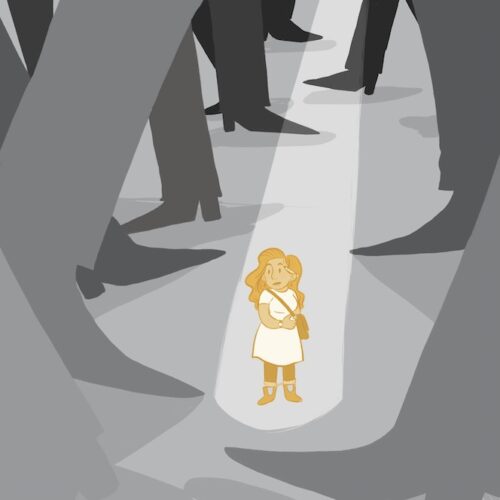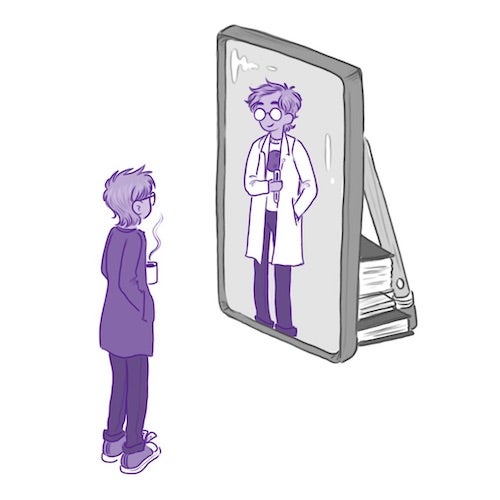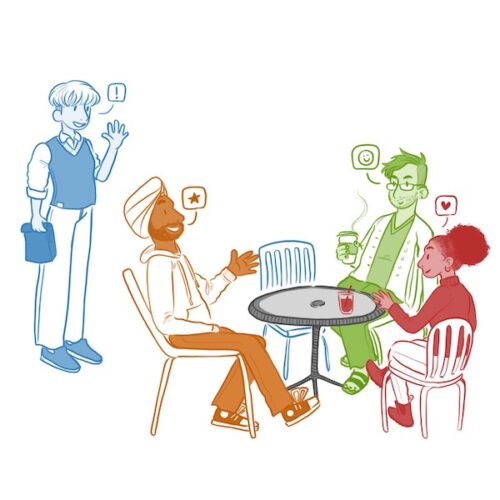
‘I don’t belong here with these really smart people. I’m not good enough at this. Why is this subject so much harder for me than my peers? I don’t deserve credit for this project.’
Have you ever had any of these thoughts in your education or your field of work? If so, then you too have experienced the impostor phenomenon (or imposterism). This behavioral health phenomenon can be debilitating as it makes high-achieving individuals doubt themselves and can lead to negative health and professional outcomes such as burnout, low self-esteem, anxiety and depression.
In science, technology, engineering and mathematics (STEM) fields, imposterism runs rampant, particularly among historically marginalized students. Associate Professor of Mechanical and Biomedical Engineering Krishna Pakala is dedicated to changing that through storytelling.
With the support of College of Business and Economics faculty Anne Hamby, and College of Engineering faculty Eric Jankowski and Jelena Pokimica, Pakala is leading a program with the national nonprofit The Story Collider. The project is in collaboration with Utah State University and funded by a National Science Foundation grant of nearly $500,000. The project will impact 200 graduate-level students over three years by teaching students to battle imposter phenomenon and enhance professional identity and sense of belonging by learning and applying storytelling techniques.
“The approach of this storytelling can be very transformative, and it can be applied at different levels,” Pakala said. “And then these students are the ones who will eventually become professors or industry professionals, so they can have a huge impact in how they communicate about their work and themselves in science.”
Through this cohort-based study, students will learn to reflect on their own stories while studying the basic framework of storytelling. In sharing stories about themselves, students will establish a sense of self, and be able to acknowledge and challenge the imposterism that they and their peers feel.

“People often dismiss stories as insubstantial, but the stories we tell ourselves–and others–about ourselves come to define us. They are very powerful in shaping how we think and what we do,” Hamby said.
Each semester will culminate in a public storytelling session attended by students and the broader community.
“I’m excited, in part because this work is a tangible way to update the narratives about who does science and how it happens, making our training programs more fair and fun, and in a way that’s easy to share with others,” Jankowski said.
Pakala and Utah State Engineering Education faculty Angela Minichiello identified a gap in present STEM graduate education. STEM field curricula usually focuses on technical skills and developing content-related expertise, but misses the critical opportunity to educate students on self-identity and the sense of belonging that is critical to success in a graduate program.
“We know that STEM education programs—graduate programs in particular—can be competitive, lonesome, and even alienating places to be. Far too many interested and diversely talented students leave STEM simply because they come to believe they don’t belong. We want to showcase the multiplicity of ways it is possible to ‘be’ and ‘do’ in STEM,” Minichiello said.
“If successful, the goal is widespread adoption of this curriculum that will contribute to equipping STEM graduates across the country with a self-view and sense of belonging that will have an enduring influence on persistence in their graduate programs and professional pursuits, whether within or outside of academia,” Pakala said.
